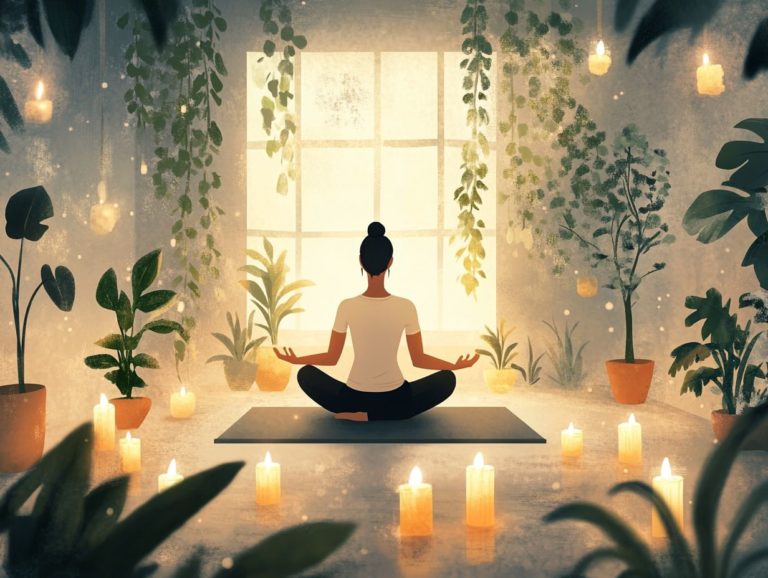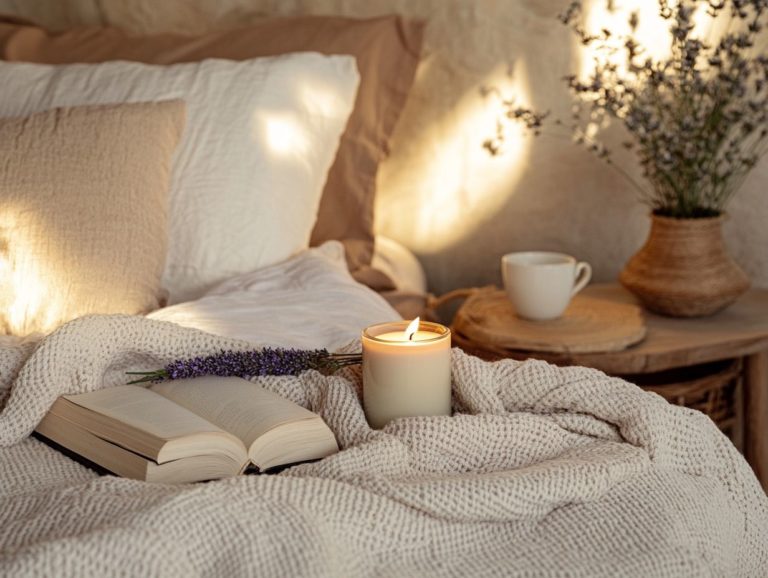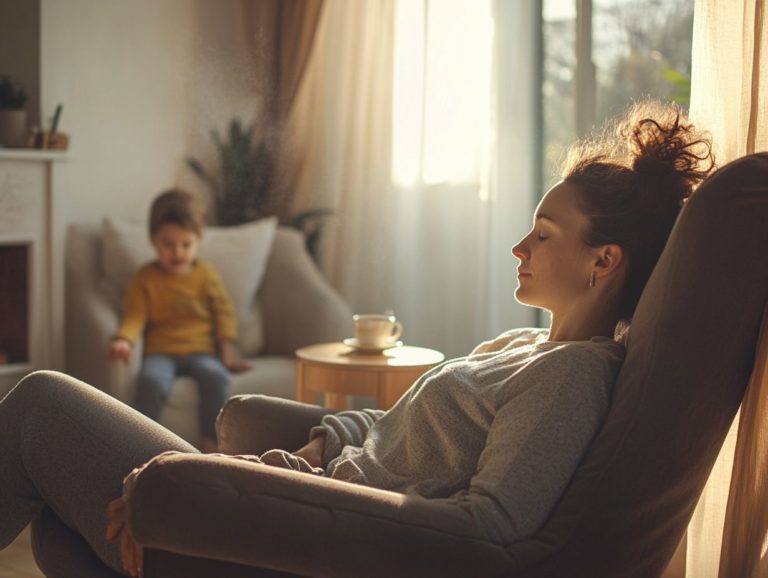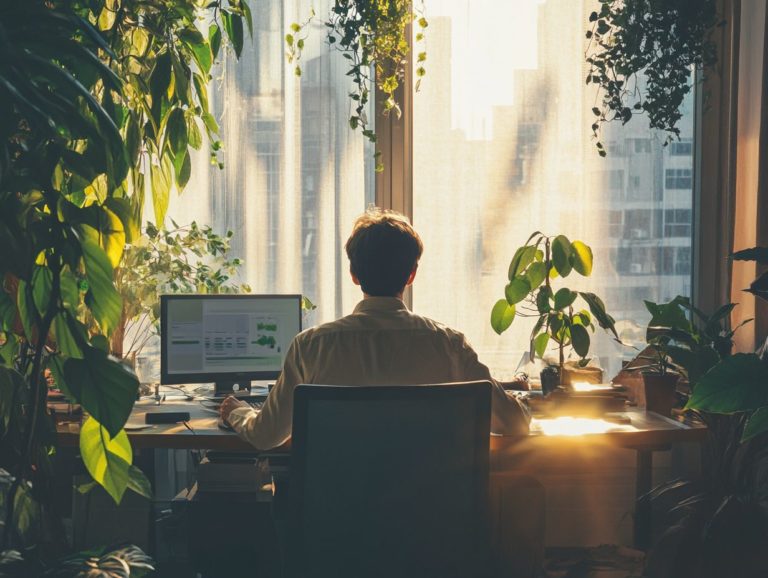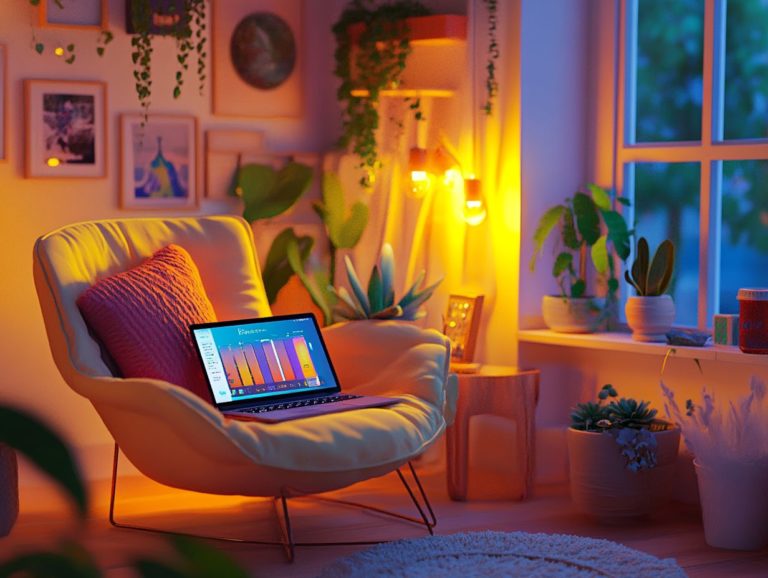How to Make Relaxation a Daily Habit
In today s fast-paced world, you might find relaxation taking a backseat, leaving you feeling stressed and overwhelmed. Recognizing the importance of relaxation is essential for your mental and physical well-being.
This article delves into the benefits of relaxation, provides tips for crafting a personalized routine, and introduces mindfulness techniques to elevate your practice. It also confronts common barriers to relaxation, offering practical advice for making it a priority in your daily life.
Uncover how to transform relaxation into a refreshing habit that nurtures your overall health.
Contents
- Incorporating Relaxation into Daily Life
- The Role of Mindfulness in Relaxation
- Overcoming Barriers to Relaxation
- Making Relaxation a Priority
- Frequently Asked Questions
- What is relaxation and why is it important to make it a daily habit?
- What are some ways to incorporate relaxation into a daily routine?
- Why is it beneficial to set aside specific time for relaxation every day?
- What are some potential barriers to making relaxation a daily habit?
- How long should a relaxation session be to have a significant impact?
- Can relaxation be incorporated into daily tasks?
Key Takeaways:

- Regular relaxation reduces stress and boosts well-being.
- Practicing mindfulness techniques like deep breathing and meditation promotes relaxation and calmness.
- Prioritizing relaxation, despite common barriers, can lead to increased productivity and improved mental health.
The Importance of Relaxation
Understanding why relaxation matters is essential for enriching your overall health and well-being. By embracing various relaxation techniques, you can effectively reduce stress, sharpen your focus, and elevate your quality of life.
Try muscle relaxation, tai chi, or guided meditation today! These practices help alleviate chronic pain and emotional discomfort and also enhance mental health and digestion.
Integrating these methods into your daily routine can counteract the impact of stress hormones, nurture family dynamics, and promote a balanced diet alongside self-care practices.
Understanding the Benefits
The benefits of mastering relaxation techniques go far beyond mere leisure; they encompass improved mental health, emotional regulation, and significant stress relief.
These practices give you the power to enhance your focus, allowing you to confront daily challenges with a clearer mind. Techniques like mindfulness invite you to cultivate a deeper awareness of the present moment, effectively reducing anxiety and fostering a state of calm.
Even dedicating just a few minutes each day to meditation can help you build resilience and emotional stability essential tools for navigating life’s inevitable ups and downs.
By weaving these methods into your daily routine, you can not only lower your stress levels but also cultivate an overall sense of well-being, leading to a more balanced and fulfilling lifestyle.
Creating a Relaxation Routine
Establishing a relaxation routine is crucial for seamlessly incorporating relaxation techniques into your daily life. This practice fosters consistency. It also enhances your mental health and emotional well-being.
Investing time in this routine allows you to cultivate a sense of calm that enriches your overall quality of life.
Identifying Activities that Promote Relaxation

Identifying effective relaxation activities is essential for lowering stress and enhancing your overall well-being. Options like tai chi, meditation techniques, and visualization can offer profound benefits.
Each method opens unique avenues for tranquility. For example, tai chi, a gentle form of martial art, combines gentle movements with deep breathing, fostering a sense of mindfulness that calms both the mind and body. Guided meditation can transport you to serene landscapes, creating a peaceful mental space that alleviates anxiety.
Muscle relaxation techniques encourage physical awareness, allowing you to consciously release tension stored in your body. It s vital to recognize that personal preferences significantly impact the effectiveness of these activities. What resonates with one person may not work for another, so it’s essential to explore different options to discover the most suitable approach for fostering your relaxation.
Start your relaxation journey today! Explore different techniques and find what brings you peace.
Incorporating Relaxation into Daily Life
Incorporating relaxation into your daily life requires a mindful commitment to practices like daily meditation and mindfulness. These practices play an important part in managing stress effectively.
This commitment is vital in today s fast-paced world. Work and family demands often overshadow personal well-being.
By finding small moments of calm, like a few minutes of deep breathing or a brief walk, you can reclaim your peace.
Using time management strategies, such as prioritizing tasks and scheduling relaxation periods, helps cultivate a balanced routine.
Eating a nutritious diet rich in whole foods, fresh vegetables, and omega-3 fatty acids enhances your mental health. It equips you with the support needed to navigate daily challenges.
The Role of Mindfulness in Relaxation
Mindfulness is a crucial element in your journey toward relaxation. It connects stress relief with improved emotional regulation.
By embracing mindfulness, you enhance your mental well-being. This fosters a state of tranquility and balance in your life.
Practicing Mindfulness Techniques
Practicing mindfulness techniques like focused breathing and visual imagery can significantly improve your ability to manage stress. Weaving these methods into your daily routine cultivates a serene state of mind.
For example, focused breathing is a game-changer in high-pressure settings. A few deep breaths can dissolve anxiety and bring clarity.
Visual imagery allows you to create a mental sanctuary. It s useful for both peaceful moments at home and chaotic days.
These practices refine your emotional regulation and nurture well-being, equipping you with greater resilience against stress.
Overcoming Barriers to Relaxation

Overcoming barriers to relaxation is essential for effective stress management. Emotional discomfort and health issues can hinder your ability to embrace relaxation techniques.
Addressing these obstacles paves the way for a serene and balanced state of mind. This enhances your overall well-being.
Addressing Common Challenges
Facing common challenges in stress management, like emotional discomfort and health issues, is vital for implementing effective relaxation techniques. Intrusive thoughts or anxiety may make it hard to quiet your mind.
Physical discomfort can also distract you from relaxing fully. Developing coping strategies, like mindfulness exercises or progressive muscle relaxation (where you tense and relax muscle groups), can help you navigate these obstacles.
Embracing resilience and adaptability empowers you to overcome setbacks and explore relaxation options. This creates a more sustainable approach to emotional well-being.
Making Relaxation a Priority
Prioritizing relaxation is essential for enhancing your well-being. Embrace daily meditation, nurture self-care routines, and maintain a balanced, healthy diet.
Tips for Maintaining a Regular Practice
To cultivate a consistent practice of relaxation techniques, establish daily habits. These habits foster mindfulness and alleviate stress.
Set reminders on your phone or calendar for unwinding moments. Creating a quiet spot in your home helps you focus and recharge.
Using meditation apps can guide you through various techniques. They simplify sticking to your relaxation routine.
Embrace flexibility and self-acceptance; acknowledging that some days will be busier than others can relieve pressure and encourage a more compassionate approach to your relaxation journey.
Frequently Asked Questions

What is relaxation and why is it important to make it a daily habit?
Relaxation means releasing tension and stress from your mind and body. Making it a daily habit is crucial for improving your mental and physical well-being.
What are some ways to incorporate relaxation into a daily routine?
Incorporate relaxation by practicing mindfulness, deep breathing, or yoga. You can also enjoy a calming bath or listen to soothing music.
Why is it beneficial to set aside specific time for relaxation every day?
Setting aside time for relaxation creates a consistent practice. This helps reduce stress, improve sleep, and boost productivity.
What are some potential barriers to making relaxation a daily habit?
Barriers to daily relaxation include busy schedules and difficulty prioritizing self-care. Emotional discomfort and guilt for taking time for yourself can also hinder your practice.
How long should a relaxation session be to have a significant impact?
Relaxation sessions can vary in length. Studies show even 10-15 minutes can significantly reduce stress and enhance well-being.
Can relaxation be incorporated into daily tasks?
Yes! You can integrate relaxation into tasks by practicing mindfulness during work or doing yoga while cleaning. Take a few minutes to unwind before bed, too.

